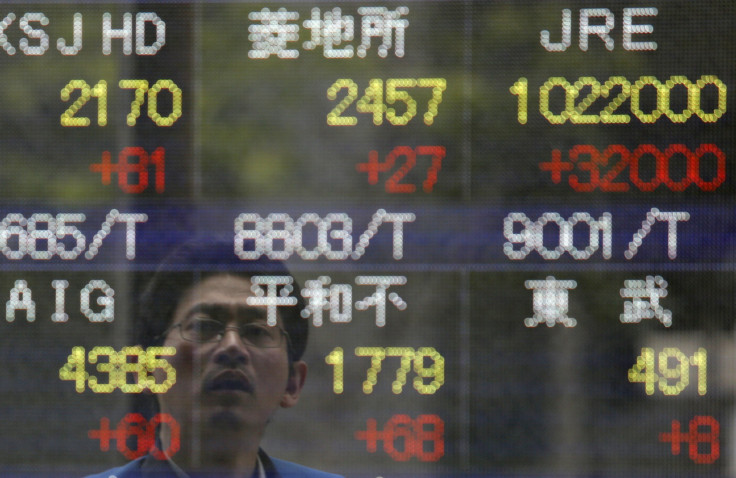Asia Grumbles As Congress Bumbles: Possibility Of US Debt Default Just Made Treasurys Less Appetizing In Hong Kong

Financial regulators across Asia are on storm alert.
Asian markets would be the first hit on the trading day after a U.S. debt default, and they're making preparations for the global blowback should the U.S. government send its economy over a cliff by not raising the debt ceiling by Oct. 17 to service the country’s obligations.
Markets in the Asia-Pacific region would bear the brunt of a U.S. Treasury Department announcement declaring the country broke because that announcement would likely be made overnight in Asia. Traders in the region would panic the following morning, sending a financial hurricane westward across the globe as markets open.
The clearest signal came Thursday when the Hong Kong stock exchange announced that investors using U.S. Treasury bonds with less-than-one-year maturities as collateral in margin buying (buying securities with borrowed cash) will need to keep more cash on reserve, known as the margin requirement, to use them. Until today, the margin requirement, known colloquially as a “haircut” was 1 percent; now it’s 3 percent. Financial clearing houses use haircuts on the valuation of collateral to cover price fluctuations throughout the day. Bonds that are less liquid have higher margins.
In other words, T-bills in Hong Kong right now are worth less because of the uncertainty surrounding a U.S. default, the result of politicians in Washington holding the economy hostage to politics. A default would blow through markets and undoubtedly send the global economy reeling in ways similar to what happened in the 1997 Asian financial crisis or the Mexican debt default in 1982.
Ashley Adler, head of the Hong Kong Securities and Futures Commission (SFC), which regulates one of the world’s largest financial hubs, told reporters in Hong Kong on Thursday that a U.S. default is unlikely but that regulators should be prepared with mitigating contingencies. The Hong Kong Monetary Authority also told banks on Thursday to ensure their liquidity risk is well-tuned just in case.
“We will watch the markets closely and consider appropriate measures as required,” the bank said in a statement to Bloomberg.
Stock exchanges and financial market regulators in Singapore, South Korea, and the Philippines have all announced contingency plans. Japan’s Securities Clearing Corporation (JSCC) said it’s in talks to prepare for the worst. The Asia Securities Industry & Financial Markets Association echoed sentiments expressed by Heather Ridout, a member of Australia's central bank policy-setting committee, and Philippines Finance Secretary Cesar Purisima, that a default would be chaos.
© Copyright IBTimes 2024. All rights reserved.






















